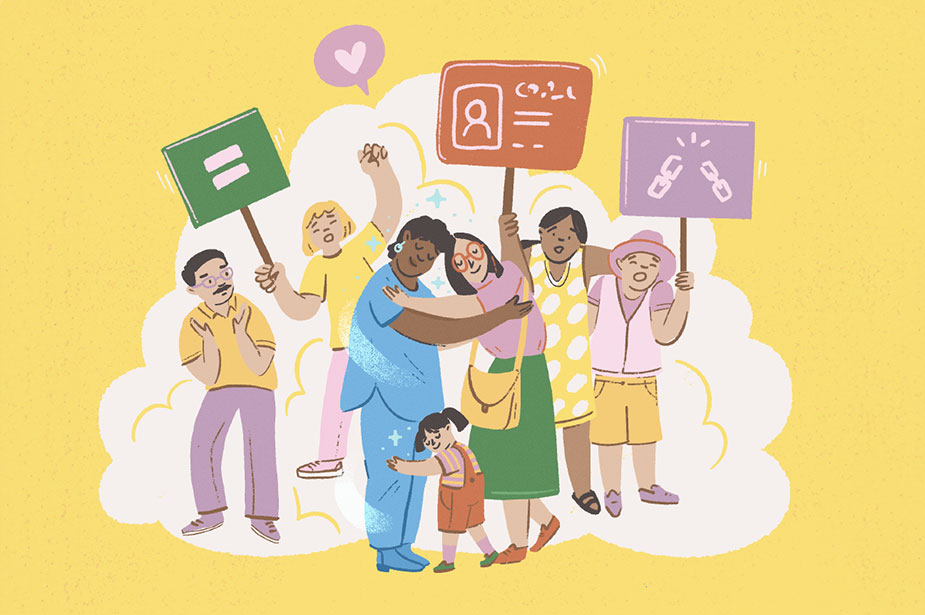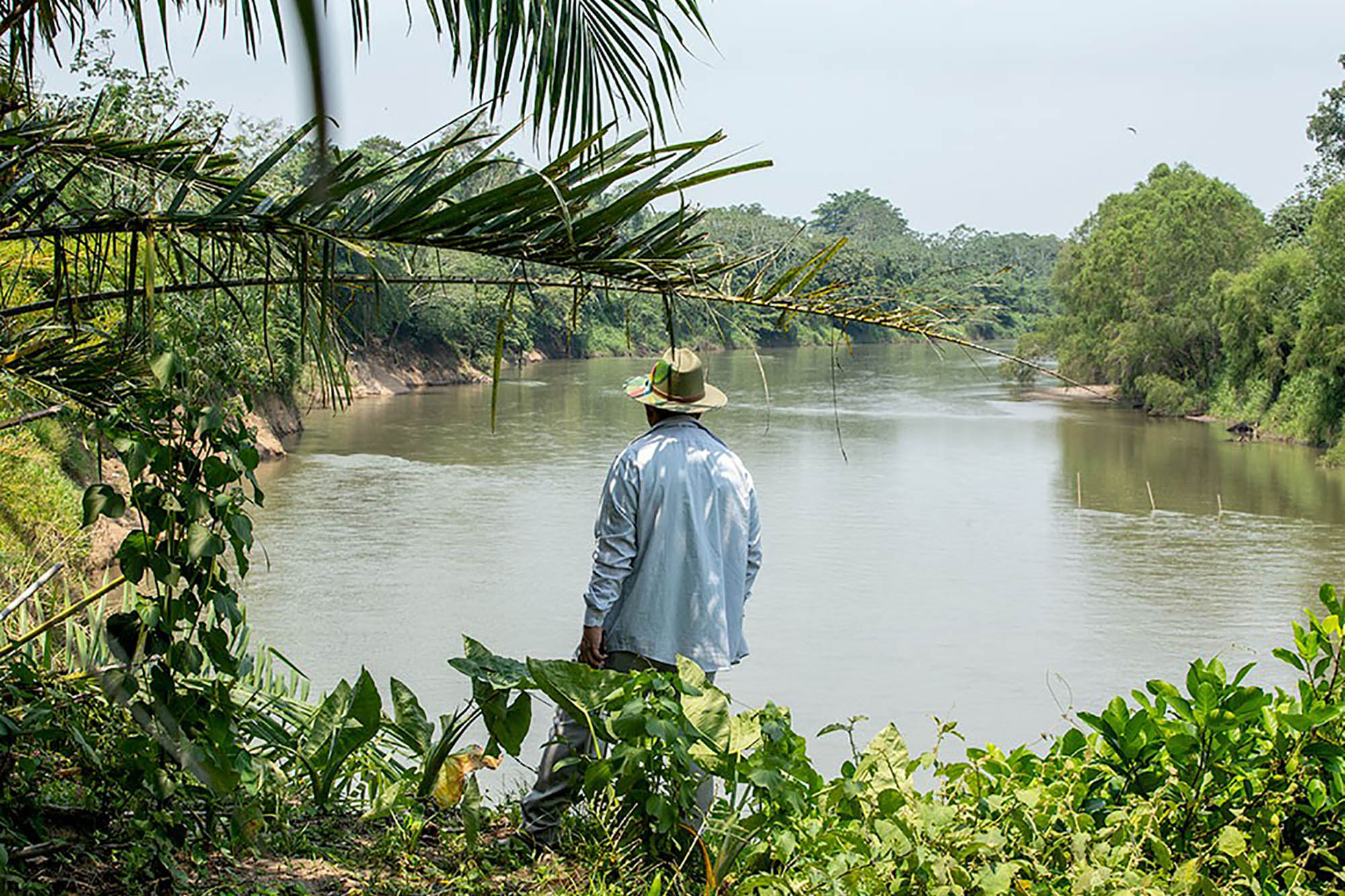The comic strip from UN Human Rights, ‘A pathway to compassion,’ tells the story of Elizabeth and her struggle due to her insecure migration status and the power of solidarity. Illustrated by Magda Castría – Argentinian artist, feminist and activist – the comic is a reminder of how everyone can be part of demanding fairer systems and rules around migration. Elizabeth's community wanted to help her and others like her and demanded a fair migration system where everyone has a chance to live safely and securely.
This World Population Day, stand with United Nations Population Fund to ensure every woman and girl has the freedom to speak, choose, and control her own body.
Nelson Mandela’s life showed how one person can turn oppression into unity and justice. His legacy compels us to renew our global commitment to peace, dignity, and equality. This year’s theme highlights that ending poverty and inequality is still in our hands. Mandela believed in grassroots action and the power of communities to drive change. His life continues to inspire the UN as it marks its 80th anniversary. On Mandela Day, we ask people around the world to take action and make a difference in their communities. Let us honour his commitment to freedom, justice, and human rights today and always.
The Smurfs, alongside the UN’s ActNow campaign and UNICEF, are inspiring children worldwide to speak up for fairness, empowerment, and a more inclusive future, with support from global stars like Rihanna and Hannah Waddingham.
On the International Day Against Homophobia, Transphobia, and Biphobia, 17 May, communities empower us to stand together against hate and create a future where everyone can thrive, no matter who they are or whom they love.
Livia Sant’Anna Vaz, a Brazilian prosecutor of African descent, likens Brazil's prisons to the slave quarters of colonial times, highlighting the ongoing dehumanization of Black individuals within a predominantly white judicial system. According to UN Human Rights, systemic racism remains embedded in countries across the world, affecting each phase of criminal proceedings, from a Black person’s initial arrest, through prosecution, and trial, conviction, sentencing and on to implementation of sentence. This issue is under international scrutiny through the UN Expert Mechanism to Advance Racial Justice and Equality in Law Enforcement, which focuses on addressing systemic racism in policing and justice. Sant’Anna Vaz describes her experience as a Black woman in the justice system as one of exclusion, citing problems such as racial profiling, wrongful incarcerations, and inadequate legal support, which contribute to suffering and neglect in prisons.
Conflict-related sexual violence is a grave violation under international law, impacting individual and collective security while hindering lasting peace. Its effects extend beyond immediate trauma, leading to stigma, poverty, and societal rejection of survivors. To address these long-lasting harms, access to mental health support and trauma-informed care is essential. Community-based strategies and legislative changes are crucial to empower survivors. On International Day for the Elimination of Sexual Violence in Conflict (19 June) join us in solidarity to #EndRapeInWar. Watch the event.
Hatred's impact has grown with new communication technologies, making it a global tool for spreading divisive ideologies. If unchecked, it undermines peace and development by fueling conflicts and human rights violations. On the International Day for Countering Hate Speech (18 June) the UN stands against hatred to defend human rights and promote the rule of law. The UN Strategy and Plan of Action on Hate Speech highlights the vital role of partnerships involving tech companies in addressing this issue. Meanwhile, Member States have prioritized AI governance through the Global Digital Compact.
Despite growing awareness, many countries still lack sufficient data. They continue to face workforce challenges that heighten risks for residents of long-term elder care facilities. A World Health Organization-supported study revealed that nearly 64% of institutional staff admitted to abusive behavior. Under the theme “Addressing Abuse of Older Adults in Long Term Care Facilities: Through Data and Action,” the World Elder Abuse Awareness Day (15 June) brings attention to this urgent issue. On this day, let's commit to taking meaningful action to build a better future for all older adults.
The 2025 World Day Against Child Labour (12 June) marks a critical moment in the global fight to end child labour. Under the theme “Progress is clear, but there's more to do: let’s speed up efforts!”, the International Labour Organization (ILO) calls on all countries to fully ratify the Minimum Age Convention, and to effectively implement the Worst Forms of Child Labour Convention, which includes all forms of slavery or practices similar to slavery. Now’s the time to make the elimination of child labour a reality.
This year’s theme for International Albinism Awareness Day (13 June), "Demanding our rights: Protect our skin, Preserve our lives," underscores the critical need for awareness, prevention, and access to essential healthcare for persons with this rare genetic condition. The theme highlights the life-threatening impact of skin cancer and emphasizes the importance of protection, early detection, and treatment. At the same time, it calls on authorities to recognize that failing to prevent skin cancer-related deaths among people with albinism violates their rights to health and life. #albinism
Play isn’t just fun; it’s essential for every child’s development. Observed annually on 11 June, the International Day of Play is a time to celebrate the transformative power of play, raise awareness of its vital role in children's growth and well-being, and come together to ensure every child can enjoy their right to play. This year’s theme, “Choose Play – Every Day,” serves as a call to action for governments, businesses, schools, and families to take decisions that embrace and prioritize play for children.
Manuel Calloquispe Flores, a journalist for 15 years, has extensively investigated illegal gold mining in La Pampa, Peru, where criminal gangs exploit the region's biodiversity. Despite mining being prohibited due to its environmental impact, the area faces severe deforestation and mercury pollution. Calloquispe raises awareness about disappearances linked to mining and advocates for affected families, transitioning from business studies to journalism upon witnessing the mining crisis. Despite facing multiple assaults and death threats, he continues to report on these issues. Since 2022, UN Human Rights Peru has supported him, documenting numerous attacks against journalists and ensuring his safety through protective measures. His work highlights the significant dangers journalists face when exposing crime and environmental issues.
In the 1970s, the Bajo Aguán region of Honduras became the focus of agrarian reform, with hundreds of families relocated to its fertile lands. However, this area has since become plagued by violence and corruption, leading to land dispossession and murders, as noted by Bardia Jebeli from the UN Human Rights office in Honduras. Legislative changes in the 1990s facilitated land purchases by agro-industrial entrepreneurs, further exacerbating these issues. Rural poverty is significant, with many affected individuals being small-scale farmers facing systemic discrimination and human rights challenges. Despite this, communities in Bajo Aguán, led by women and youth, resist these adversities, viewing their land as a vital life project. International support, especially from UN Human Rights, has provided hope and solidarity, emphasizing the importance of their role as allies in the fight for justice and equity in land rights.
The rapid growth of Artificial Intelligence (AI) is significantly transforming journalism and press freedom. While AI presents opportunities for improved access to information and global communication, it also introduces serious challenges such as the potential for spreading misinformation and increasing hate speech. Addressing these challenges requires cooperation among governments, media, and civil society. The focus of World Press Freedom Day 2025 (3 May) is the impact of AI on press freedom, media independence, and access to information.












